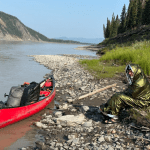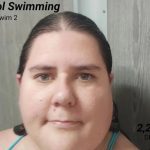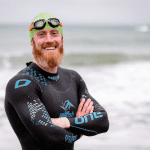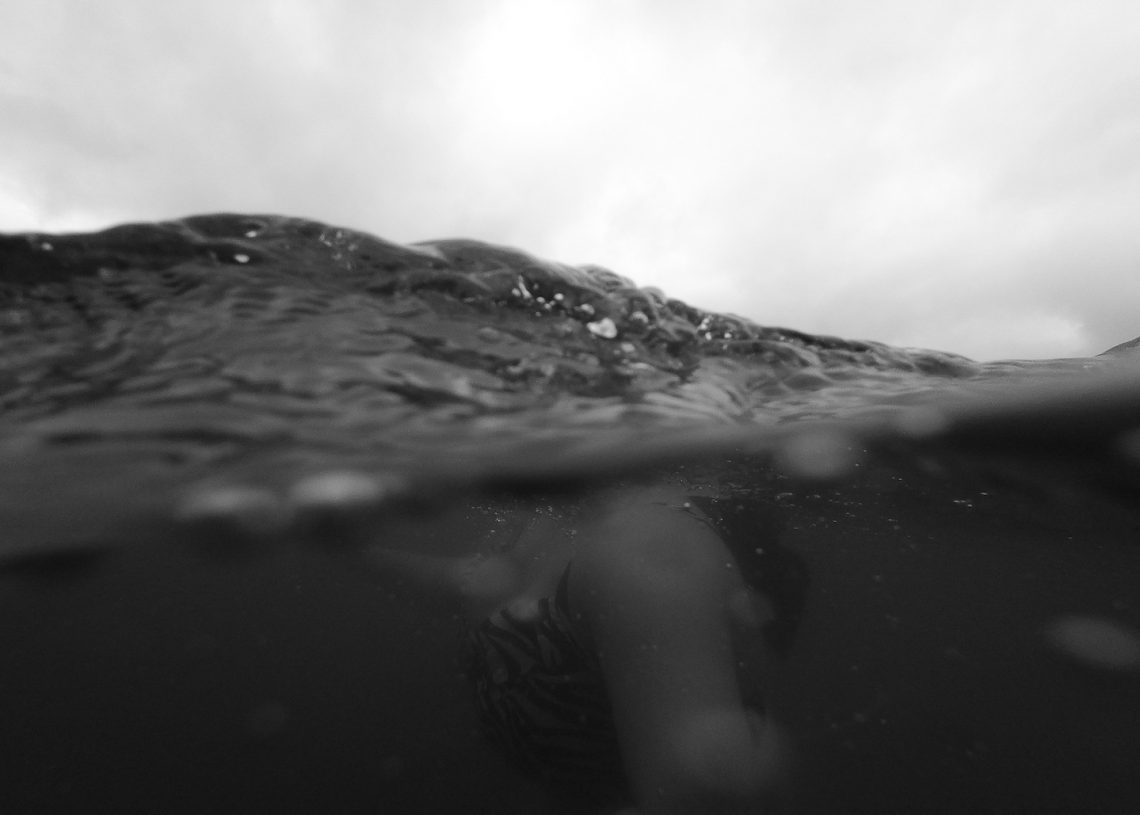
Learning to breathe above water
Natasha Longridge is a photographer from Belfast, Northern Ireland, who lives with hypochondria. In 2020 she discovered the benefits of outdoor swimming and worked on a creative project, Learning to Breathe Above Water. She shares her story.
In 2019 my grandad passed away from cancer. He didn’t tell anyone until he was sick, and he died within a few months. He was the first person I knew that had died in my life and I found it hard to comprehend, to the point that I just blocked it out. I even refused to look at him on the day of the funeral.
Fast forward six months and we are dealing with Covid lockdowns. The news at the time was bombarded with stories on health and rising death tolls. The lack of distraction and work meant more time alone with my thoughts. I received some medical news of my own, which wasn’t anything serious, but this is when I spiralled. I live with hypochondria, also known as health anxiety. I’m nearly recovered but 2020 and 2021 was the hardest.
I became fixated on my health, ringing the doctor’s office multiple times a week convinced I had a different disease or illness every time. I suffered daily panic attacks, unable to be around friends or family without bursting into tears. I went on antidepressants and attended counselling through the NHS, although not from willingness as I believed I needed to be at the hospital rather than in a therapy session.
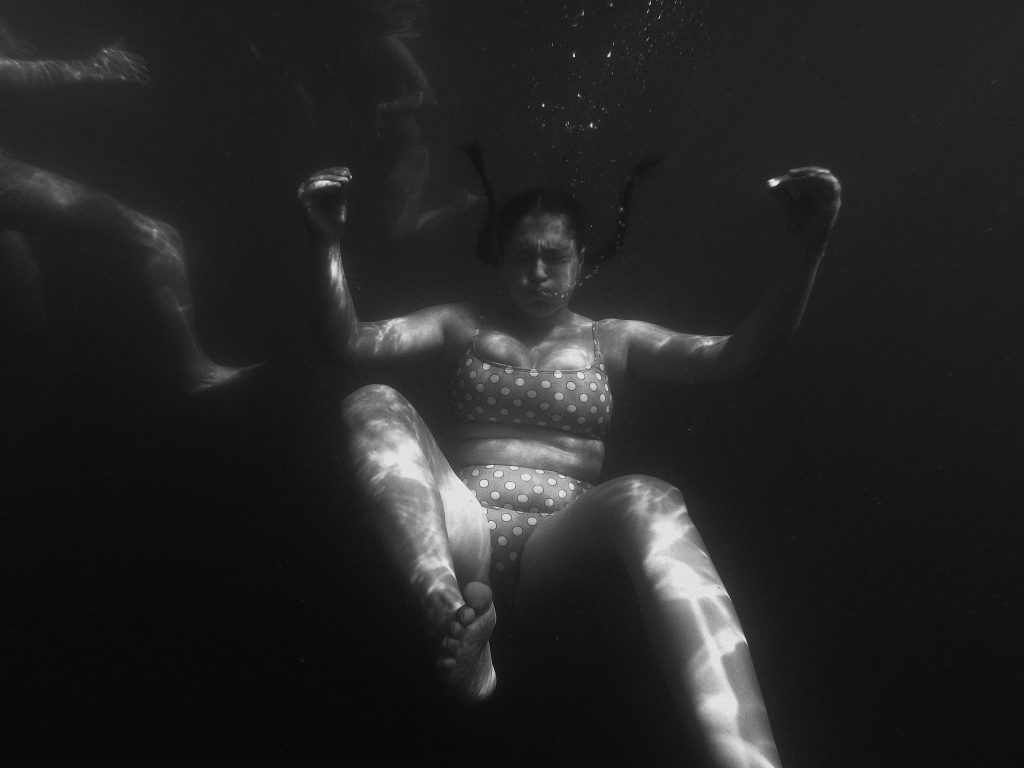
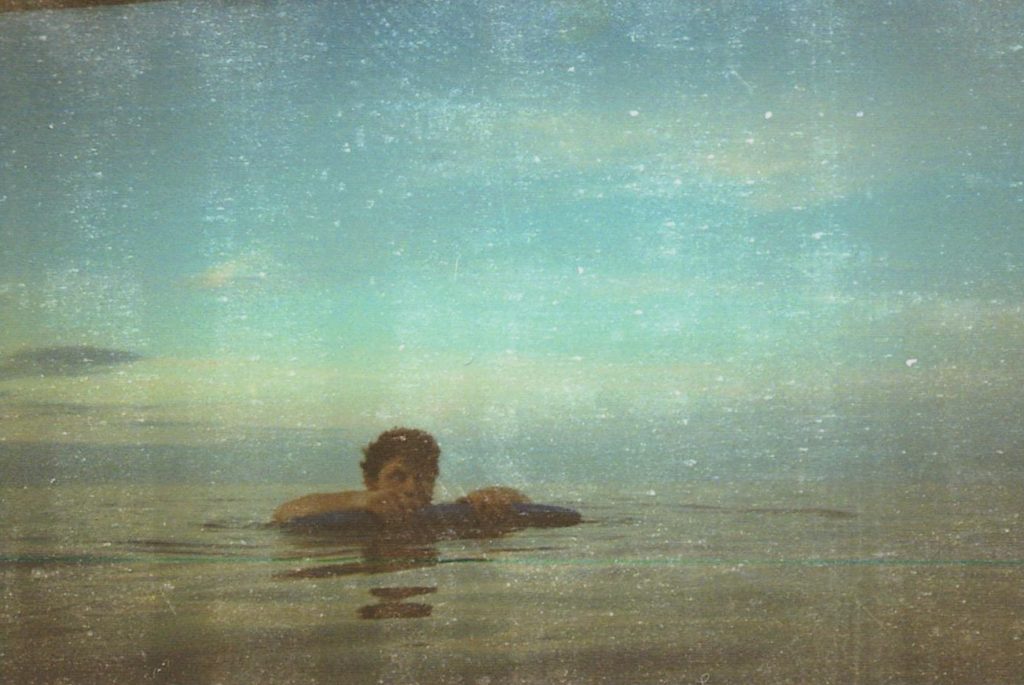
I was literally taken to the counsellor’s office by my dad after I tried to convince my doctor that the red dots on my hands where a sign that I was dying… there was no dots. The depersonalisation and antidepressants left me numb and unable to recognise myself; I felt like a stranger had taken over. The only time I felt free was swimming.
Healing waters
My partner was the one who first encouraged me to swim in the summer of 2020. I felt like I had woken up from a bad dream when I first walked into the cold Irish Sea. I felt like I’d just breathed for the first time and my thoughts were clear.
The whole experience is surreal to me; I’m so afraid of death yet when I swim, I feel the most alive. The sea became therapy. I met so many amazing fellow swimmers along the way – swimming in Belfast, Helen’s Bay and Dublin, Portmarnock, Forty Foot. I met one incredible swimmer, Catherine, who suffered a head injury several years ago and said she would forget her name and how to speak, but as soon as she got into the ocean it was like nothing had ever happened.
A photographic journey
I documented my experience for two years in the form of photos for my university dissertation. The work was later developed into a photobook and then featured in Belfast Exposed Gallery in a group exhibition under the title A Trace of Ownership.
Learning to Breathe Above Water is a project that utilises a series of snapshot images of sea swimming as a visual allegory to represent my own personal journey with hypochondria. The work expresses not only a navigation of the understanding and adaption to sea swimming to withstand the effects of severe cold, but also that of my mental illness. This is inadvertently depicted through the waterline (or lack off) presented in frame.
Overwhelming anxiety and depersonalisation are represented through the water engulfed frame, presenting a bleak isolated environment that is almost inviting in a world that seems too harsh and alien. The underwater landscape changes through the images; light disrupts the abyss, unmarked figures buoy upwards only to be distorted by refraction.
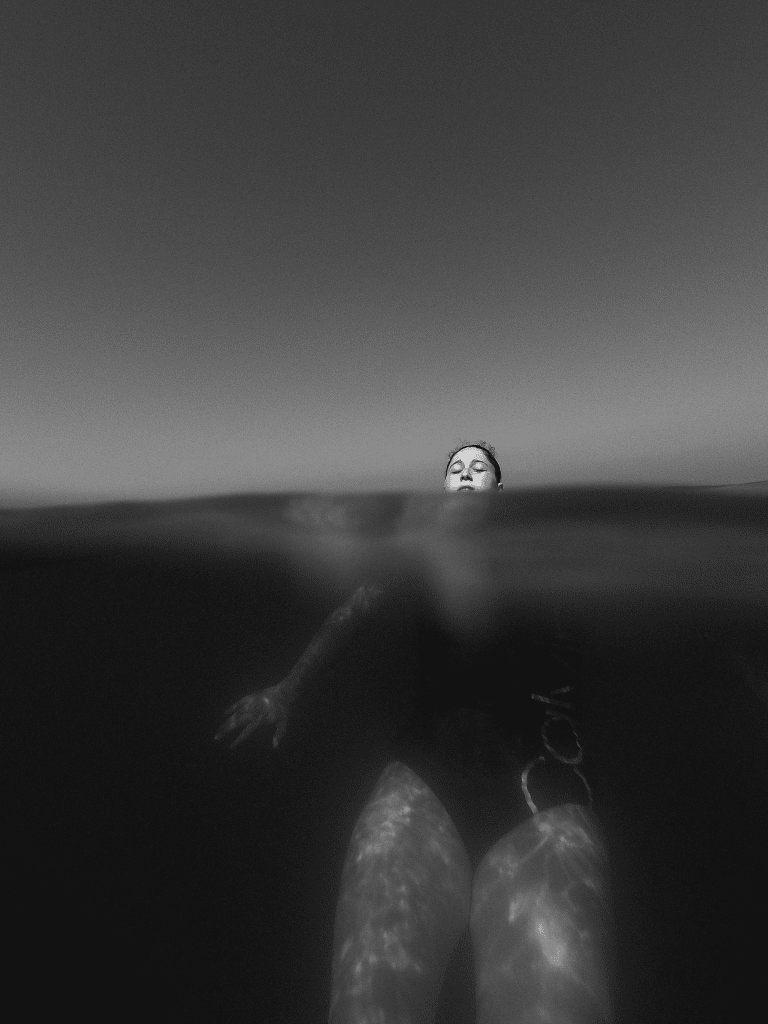
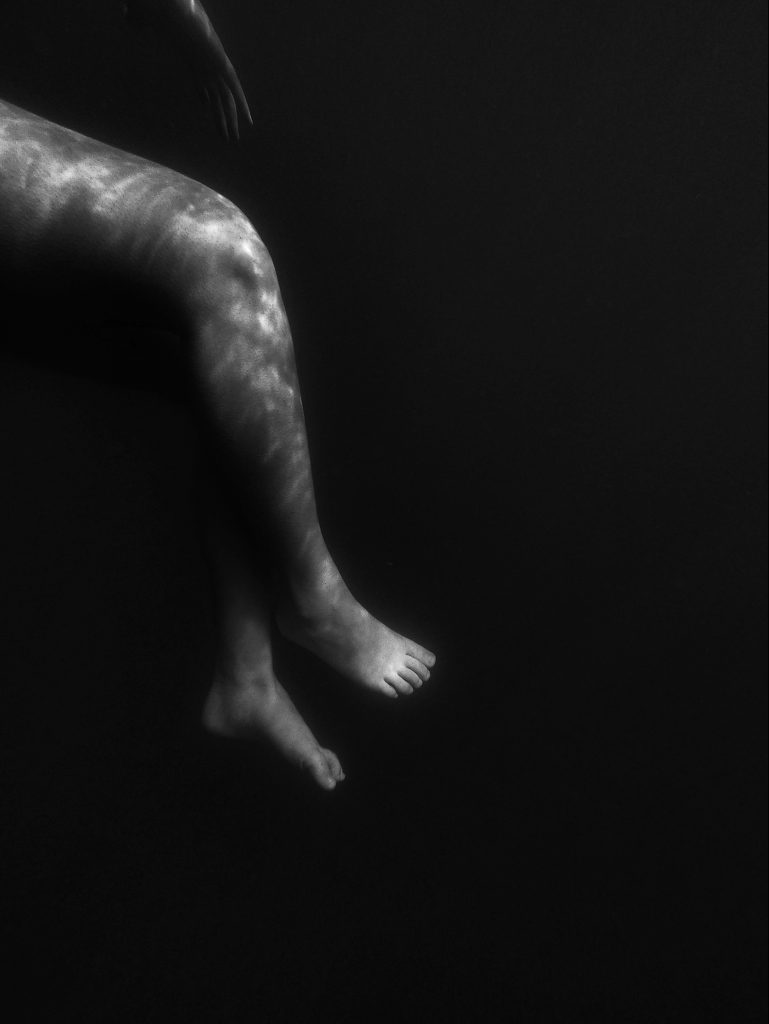
Medically dying as a child from drowning, I now return to the water to feel alive, hyperaware of my senses and in conscious control over whether I sink or swim (within steady environmental conditions). The sea has become a teacher.
During a year of regular panic attacks, a simple breathing technique, naturally derived, proved vital against cold shock in the Irish Sea. This uncanny return revealed itself in other aspects of my life. With an intense fear of medical institutions, I found myself working in a paediatrics department to earn money during the pandemic, unconsciously micro-conditioning myself to adjust to ‘scary’ medical terminology.
The project exhibits the complexities of life that we are all too familiar with, bringing to the forefront something we may have buried deep down. The informal approach hopes to provide a mutual empathic space in which the viewer can reflect on the ‘uncanny return’ in their own life.
The colour images were shot on a disposable film camera and the actual film roll got exposed to sea water, slightly ‘damaging’ the prints. These photos directly highlight the highs of this time and positive impact the ocean has left on me.
This article is from the February issue of Outdoor Swimmer. Click here to subscribe to the magazine.
Explore more readers’ swim stories.
To see all the online content from the February 2023 issue of Outdoor Swimmer, visit the 'Challenge' page.





